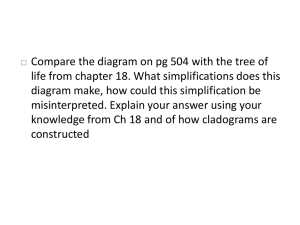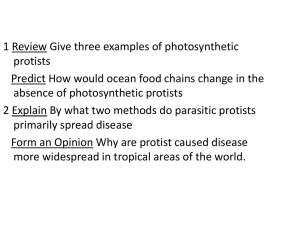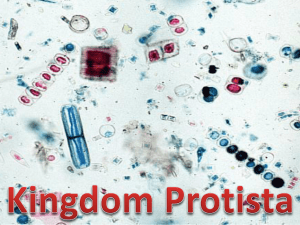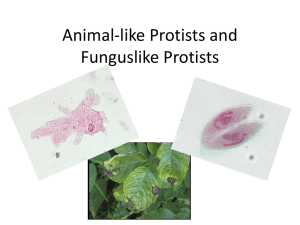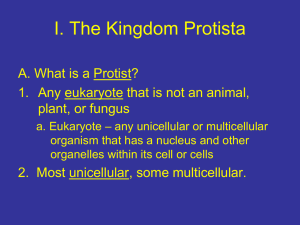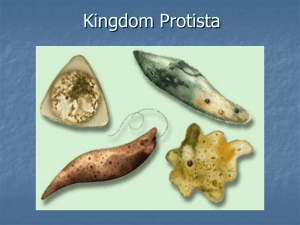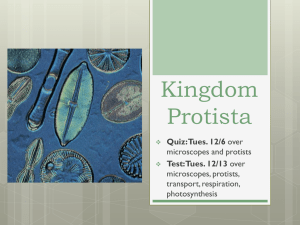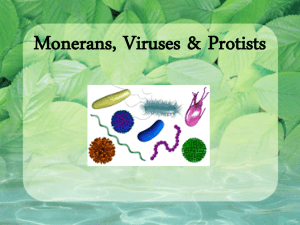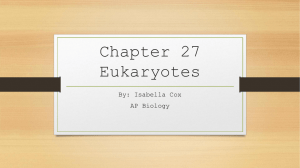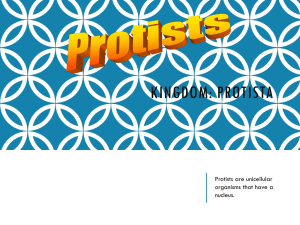Chapter 19 Protists
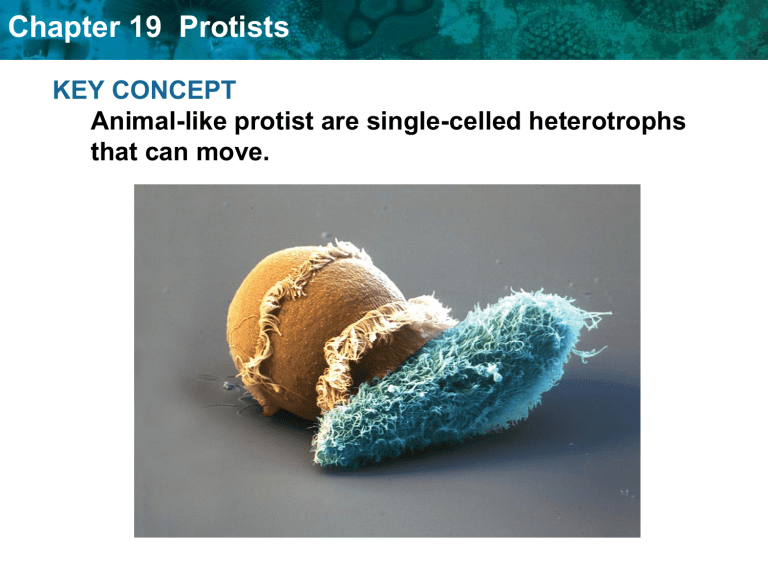
Chapter 19 Protists
KEY CONCEPT
Animal-like protist are single-celled heterotrophs that can move.
Chapter 19 Protists
19.2 ANIMAL-LIKE PROTISTS
Chapter 19 Protists
Animal-like protists move in various ways.
• Animal-like protists are often called protozoa. food vacuole oral groove micronucleus cilia macronucleus contractile vacuole
Chapter 19 Protists
• Protozoa that move with flagella are zooflagellates.
– flagella are an extension of the cytoplasm
– help zooflagellates swim
– some cause disease while others are beneficial to an organism (i.e help termites digest wood).
– more than 2000 zooflagellates
Chapter 19 Protists
• Some protists move with pseudopods (false foot).
– change shape as they move
– amoebas
Chapter 19 Protists
• Amoebas use their pseudopod. (“false foot.”) to move and to eat!
• They do this by engulfing and digesting particles
• This process is called phagocytosis
Chapter 19 Protists
• Some protozoa move with cilia.
– cilia are short, hair-like structures that cover the surface of the cell
–cilia help protists swim and capture food
– more than 8000 types of ciliates food vacuole oral groove micronucleus cilia macronucleus contractile vacuole
Chapter 19 Protists
• Paramecium is very common in fresh water ponds
– cilia help paramecium swim and capture food
– food particles are swept in to the oral groove by the cilia
– a food vacuole forms at the end of the gullet and is digested by enzymes
– the contractile vacuole pumps water out of the cell
–They have multiple nuclei – a macronucleus and many small micronuclei contractile vacuole macronucleus food vacuole gullet oral groove micronucleus cilia
Chapter 19 Protists
Some animal-like protists cause disease.
• Protists cause some wellknown infectious diseases.
• Malaria is caused by
Plasmodium and spread by mosquitoes.
• Sleeping sickness is caused by Trypanosoma and spread by flies.
• A giardia infection is caused by Giardia and spread through water. human liver sporozoites red blood cells
Malaria Infection liver cells developed parasites
19.1 Diversity of Protists
The following three slides were not in your reading material. Make sure you take notes.
Chapter 19 Protists
• Euglenoids are a large group of plantlike protists.
– mostly photosynthetic
– some heterotrophic
– single-celled
– one or two flagella pellicle contractile vacuole nucleus flagellum chloroplast eye spot
19.4 Funguslike Protists
Slime molds and water molds are funguslike protists.
• Slime molds have both funguslike and animallike traits.
– decomposers, like fungi
– can move, like animals
19.4 Funguslike Protists
• Water molds are freshwater, funguslike protists.
– one type of water mold caused Great Potato Famine of Ireland in the 1800’s
– made of branching strands of cells
– can be parasites of plants or fish
